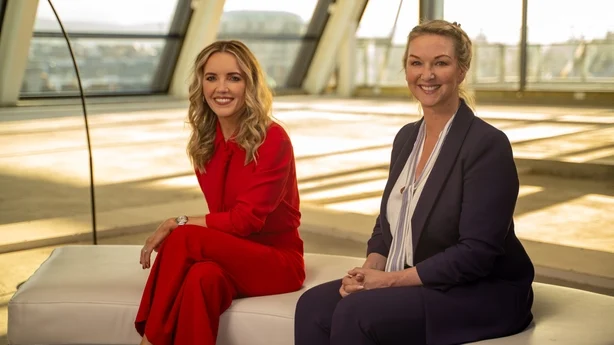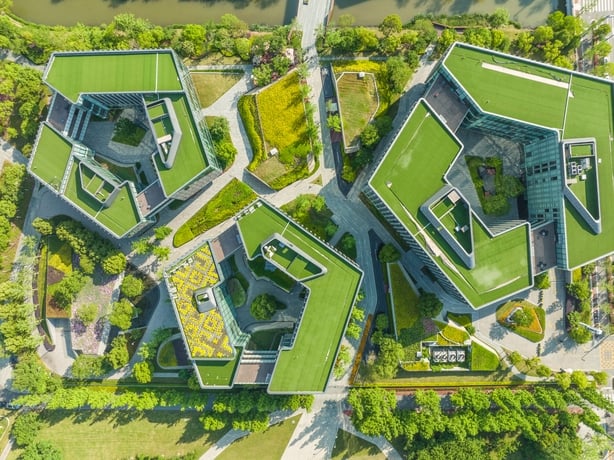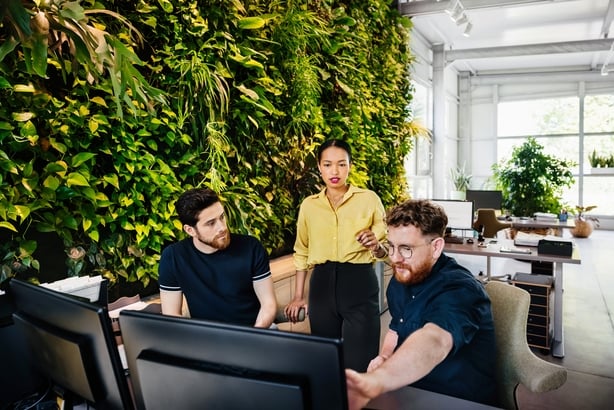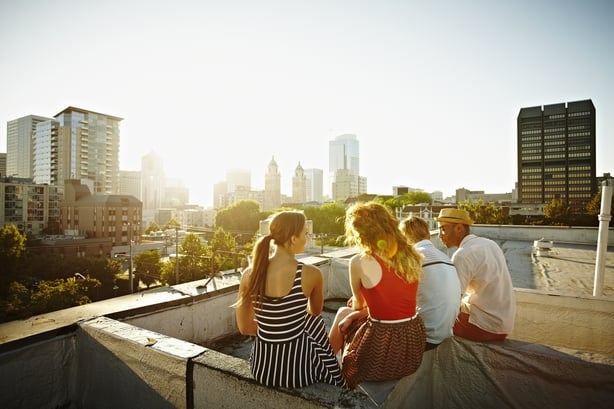Stay updated with the latest beauty tips, trends, and news from our salon experts. Our blog is your go-to source for all things beauty.
Sponge cities, climate resistant builds, passive housing, biomimicry - these are just some of the terms we'll be using to describe our homes and cities in the next three decades, if given the chance.
With flooding, wildfires, choked resources and an ever-rising cost of living becoming more commonplace for the vast majority of people, we are being forced to adapt how we live in our cities, from the frightening realities of climate change to isolated communities withering away as more people leave.
But what if we saw this as an opportunity to revolutionise our cities, instead of abandoning them?

The series - co-hosted by Mancey and Carla O'Brien and which runs as part of National Science Week - will show how Athlone could be a near-future metropolis, a capital of the midlands and a new home for a quarter of a million people in 2050. This exciting transformation, built on Irish scientific research, could happen just as easily to any other Irish town or urban centre.
Considering the vast amount of (justified) discussion about climate change and its frightening consequences on our planet, Mancey set the tone for a chat that, rather than just focusing on the bad, highlighted the very real and motivating ways we can adapt for the future.
As an anthropologist with the UCD Innovation Academy, she's well used to fielding questions about our future as human beings. "You can fall into one of two camps quite easily, like the dystopian side of, Oh, my God, it's all overwhelming and we're done for, which I think is the rhetoric or the narrative around a lot of climate change, to be honest", she said.
"Or if we have solutions now, what does that mean for the general population? Rather than waiting for solutions to be developed by companies or mandated by government, what steps can we all take and what would that look like?"

So what does that mean in a real world sense? As well as a society that is green and beautiful, for Mancey, moving forward often means looking back, "to say, what did we love about the past and what do we desire as human communities?" What we're missing, she said, is connection.
Modular housing is one way forward, creating homes that are built in sections on site and can be adapted to suit the needs of the family. This is housing "that you can develop for your children to live with you and then perhaps elderly parents to come back to", she explained.
3D printing with concrete has already been used to create more afforable homes, but research has already planned for even more impressive versions of this: bamboo materials, recycled concrete and hempcrete, made from hemp, are just some of the new, more sustainable, materials being developed.
Homes could be built using biomimicry, a technology practice that takes its cues from nature and tries to implement design choices into the home to make it more adaptable and intelligent. "Nature has all the answers", Mancey said. Biophillic homes could have living walls and green, verdant roofs that regulate temperatures and reduce stress.

"Not too far off into the distant future, homes will repair themselves through the materials that they're created from."
Outside of our homes, cities can be reimagined to become "climate resistant": in the Athlone of the future, it can be transformed into a sponge city, where "the design of the city actually integrates the water flow into it", minimising the risk of flooding.
Bewitched by these innovations, I couldn't resist asking: is this something I, as an individual, will ever be able to afford?
Yes and no, Mancey said. "The developments are there in terms of innovation. It's the implementation that's the challenge", she added, noting that governments will have to take the charge in investing in this infrastructure.
"But also it's about making a choice and to say, OK, we choose to lean into this. It's going to be a little bit more expensive at the beginning, but the cost of all of this will start to come down to the point whereby eventually, not too far in the distant future, we'll be using renewable energy to actually create energy to give back to the grid."

Arguably more of an obstacle, she said, will be the changes needed to make such bucolic living happen. With resources more strapped than ever, shared utilities, cars and communal spaces could be the way forward, something that some will inevitably reject at first, although these changes would be done bit by bit.
"In some ways, we need to have a good conversation with ourselves to say, I'm either part of it or I'm not. And if I am part of it, there's going to be some things that I'm going to need to maybe adjust my mindset on, which is that at certain times of the day or certain areas, I'm going to need to have communal aspects rather than individualistic.
"It might feel like going backwards a little bit", Mancey said. "But actually, we need to share these resources for all of our sakes, and that will reduce our individual living expenses as well."
"We did this so well thousands of years ago", she said. "We just need to return to that, but add in technology to help us get there, and that's the future for us."
Mancey is a keen advocate for using technology to help us move forward into a better future, and when it comes to data sharing and tech companies buying our data to build algorithms, "we've already opened Pandora's box to some extent", she said.
Rather than retina scanning or other extreme examples of AI tech, Mancey imagines a city that monitors the carbon emissions in one neighbourhood and redirects traffic to another to maintain air quality.

Hand in hand with technology, however, is going to be a need for "digital detoxes" that is reflected in our cities, "the times when we go back to using our hands, to being very practical, to actually not having technology around us at all".
As utopian as this sounds, Mancey is keen to stress that all of this would be subtle tweaks, saying, "So there are enormous amount of problems, as quick as we have solutions, we'll have more problems. That's just the nature of life."
But if given the chance to make these changes, the focus would be placed squarely on the person and how they can live better, happier, healthier lives.
"I want a life where I can walk outside, speak to real people, where my home is warm and it doesn't cost me 80% of my wages. I want to live in a place that has core values and identity, cultural pride, community, and innovation is part of that. I think when people understand that it's not an either or, then I think that they can start to have those conversations."